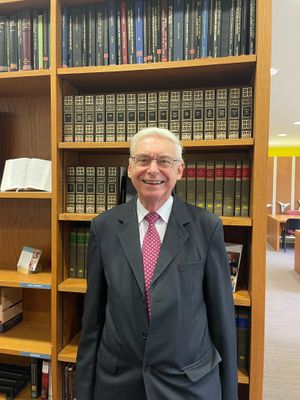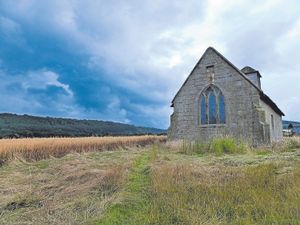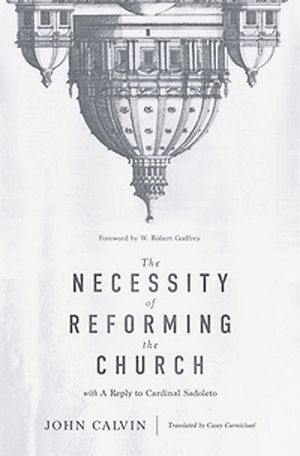The local church – heaven on earth?
How was your last Sunday? How is your local church? Perhaps you have mixed feelings about it. In a sense that is natural and inevitable – our churches are full of sinful, weak, inconsistent people just like us and are far from perfect.
But there is, I think, a real danger of becoming overly critical and negative when we think and talk about our local churches. We can, if we are not careful, focus on the weaknesses in our churches, comparing them, perhaps, with larger or more ‘successful’ churches.
We wish our churches were full of young people and families, with vibrant singing, powerful preaching and real commitment. Yet, so often, they are not. And we can become discouraged and disillusioned as a result.
Well, there are many things which can and should be done. But I am convinced that we all need one thing in particular – a fresh biblical vision of the local church and its place in God’s plan of redemption.
We need to be stirred again, from Scripture, to see something of the wonder that is the local church, something of her extraordinary place in God’s unfolding purpose. We need a far higher view of the local church than I suspect we currently have.
This, then, is my theme and I hope it will encourage you to greater commitment, love and faithfulness in your own local church and, in the goodness of God, lead to growth both spiritually and numerically.
Biblical theology of the church
What I want to present to you, then, is a biblical theology of the local church as the place in this age where God comes to dwell with man. I will seek to show, from the whole sweep of Scripture, how it has always been God’s plan to save for himself a great multitude of people from all corners of the world – that he may forever dwell with them and they with him.
Then I want to show what this means for the local church. What should the church on earth be like in the light of this theology? What should be its main features and characteristics? Then finally I want to draw some practical conclusions.
God dwells with mankind
In the beginning, we are told in Genesis 2, God ‘planted a garden in Eden’ for man to live in with his wife Eve, to ‘work it and keep it’. All was perfect until their tragic sin.
But the very chapter which records their fall also records a wonderful feature of their experience in the garden – ‘they heard the sound of the Lord God walking in the garden’. This tells us something of great importance – God loved to walk in Eden.
The very language of Genesis 3:8 conveys something of God’s delight, as he walked there ‘in the cool of the day’. He enjoys this garden where he has placed the creatures who bear his image. He has come to have fellowship with them.
This sets a pattern clearly visible throughout Scripture. Adam and Eve are cast out of the garden, and sin and death create a massive barrier between man and God. But that does not prevent God from unfolding his everlasting plan to dwell with mankind.
The experience of Moses
Consider Moses. The people of Israel are brought up out of Egypt by the mighty hand of God. They are commanded to go to Sinai where God will meet with them. And there he comes down upon the mountain in great glory and power, and speaks to his people the Ten Commandments.
Then, remarkably, Moses and Aaron, Nadab and Abihu and 70 of the elders of Israel went up the mountain ‘and they saw the God of Israel. There was under his feet as it were a pavement of sapphire stone, like the very heaven for clearness. And he did not lay his hand on the chief men of the people of Israel; they beheld God and ate and drank’ (Exodus 24:11).
What do these extraordinary verses tell us about our God? That he delights in the fellowship of his human creatures, even to the extent that they eat and drink in his presence!
Then again Moses constructed the tabernacle as the place where God came down to meet with him and with the people. As the tabernacle was set up for the first time, God descended and, we are told, ‘the glory of the Lord filled the tabernacle’.
Thereafter, God dwelt among his people, appearing as a cloud over the tabernacle by day and as a fire within it by night (Genesis 40:38).
And yet there was distance, still, between God and his people. The tabernacle itself was hedged around with restrictions and barriers. The people did not have direct access to the tabernacle – Moses went in on their behalf. And their access to God was mediated through a complex system of priests, sacrifices and offerings.
Day by day the people knew their God dwelt among them and yet he was always at arm’s length – approachable only through death, sacrifice, ritual and ceremony.
Moses is but one example. Throughout the Old Testament we see God’s plan unfolding. He saves a people for himself and he comes to dwell with them. Yet there is a distance between God and his people which drives home the seriousness of sin and the massive barrier between mankind and the living God erected by man’s disobedience.
Yet God was preparing the way. He does not dwell in earthly tabernacles nor in temples made with hands. He has something far, far more glorious in view.
God with us
So we come to the New Testament and to one, says Matthew, who is himself ‘God with us’. No need of a temple now – Jesus himself is the temple, the place where God dwells with man. He is the one who was with God and who is God.
John tells us, ‘the Word became flesh and dwelt amongst us’. Literally, he ‘tabernacled’ among us – the word is the same as the word used for the tabernacle or tent. Furthermore, John declares, ‘we have seen his glory’ – just as Moses, and later Solomon, saw a cloud of glory descend on their constructions.
But this time the glory resides not in a cloud but in a man. God dwells among men, walks and talks with them and shares their joys and suffering. Christ is Immanuel – God with us.
But even that is not the whole story. Amazingly, in view of what we have seen so far, the NT tells us that Christians themselves are to be regarded as the temple of God, and this in two different but complementary ways.
Paul tells us that the body of the individual Christian is a temple of the Holy Spirit – the very dwelling-place of God (1 Corinthians 6:19). This is an extraordinary statement. Yet it is coupled with another, equally important truth, namely, that the church, considered as a unity, is the temple of God and that God’s Spirit dwells within her. Speaking of the church as a whole, Paul says, ‘Do you not know that you are God’s temple, and that God’s Spirit dwells in you?’ (1 Corinthians 3:16; see also Ephesians 2:19-22).
The dwelling place of God
The church, then, is now the dwelling-place of God – not, of course, as a building or human organisation but as a community of God’s people. No longer is there a special place set aside for God’s name; no longer are there sacrifices, priests and rituals, or restricted access to God.
The once-for-all sacrifice has been offered, the veil of the temple has been rent, our great high priest has come. By one offering he has made perfect atonement for the sins of all his people – reconciling them to God.
But Jesus Christ is now risen from the dead, has ascended into heaven and sits at God’s right hand. Where, then, is God’s dwelling-place among us now? It is, says Paul, the church – God’s people here on earth.
It is this extraordinary fact which I want to dwell upon a little longer. And to obtain the greatest benefit, we need to look into the future, to the end of the story.
The apostle John was granted a vision of the new heavens and the new earth. He saw the holy city, the bride of Christ – the consummation of all things. And he heard this declaration:
‘Behold, the dwelling place of God is with man. He will dwell with them, and they will be his people, and God himself will be with them as their God. He will wipe away every tear from their eyes, and death shall be no more, neither shall there be mourning nor crying nor pain any more, for the former things have passed away’ (Revelation 21:3-4).
There it is, the consummation of God’s glorious plan – God dwelling with man for evermore. A new heavens and a new earth where God and man dwell together as they did in Eden; without sin, without suffering, without death. But this time it is for ever.
Final destination
This is our destination if we belong to the church of Jesus Christ through repentance and faith in him. And notice that it is, most emphatically, a corporate destination. We will, of course, retain our individuality but the picture language is corporate – a city.
In the second part of this article I shall argue that the church, as the dwelling place of God on earth, ought to reflect what she will be in the new heavens and the new earth. The things that characterise that final glorified state are the very things we should seek to cultivate in our local churches here and now.
Part 1 of a two-part extract from Robert Strivens’ inaugural lecture as Principal of London Theological Seminary, delivered on 14 October 2008.
Robert Strivens


















